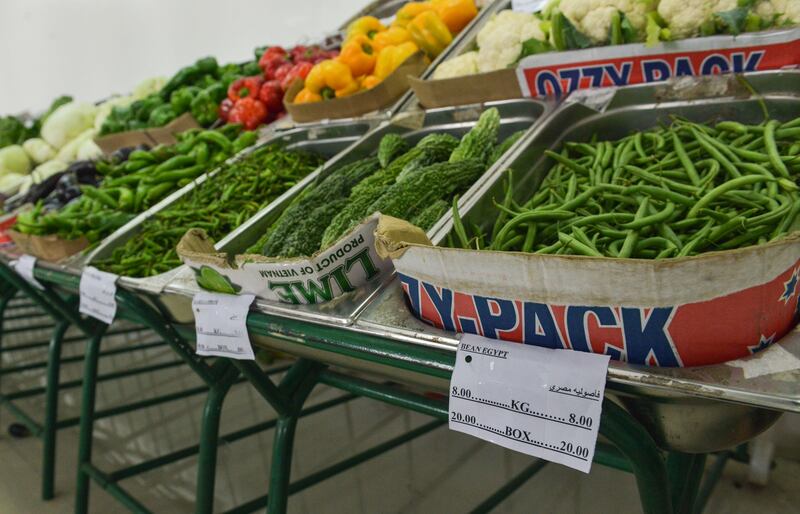The issue of where food is sourced from is one that confronts every country around the world. And with consumers often wanting to buy certain fruit and vegetables out of season, food imports are more of an inevitability of the supply chain than a luxury.
Gulf countries are, of course, heavily reliant on imports, especially given the scarcity of rain and fertile land on which to grow local produce. In 2010, it was estimated the Gulf Co-operation Council countries collectively imported $25.8bn worth of food products. By 2020, that figure is expected to rise to more than $50bn.
Earlier this year, the Ministry of Climate Change and Environment banned the import of certain fruit and vegetables from five countries in the Middle East over concerns about high chemical levels.
As The National reported, doctors have warned of possible links between cardiovascular disease, cancer and osteoporosis and high levels of pesticides in imported food. In particular, local doctors have reported an increase in the number of cases involving inflammation of the digestive tract due to exposure to food that may have been treated with harmful chemicals. The debate on pesticides is a difficult one and it is worth noting that chemicals do help farmers preserve more of their crops during growing and cultivation cycles. Pesticides have also helped prevent the deaths of millions of people by killing disease-carrying pests, such as the malaria mosquito.
To mitigate against these and other risks, many consumers have turned towards organic produce, because it is perceived as "cleaner" food. Demand for organic produce has been rising, prompting more and more seasonal markets to pop up, as well as boxes of produce being available for home delivery. In other words, change is underway.
While the Government has always acted quickly when it identifies risk in food supply, as the banning of produce from Egypt, Oman, Jordan, Lebanon and Yemen clearly demonstrates, we'd also encourage food importers and supermarkets to be completely transparent about the provenance of their produce. Consumers increasingly understand that the food they put into their body has a direct effect on their health and well-being. Many will want to know, not just where a particular foodstuff has come from, but how it was produced and what chemicals it may have been exposed to. Most of us want to make informed choices about what we eat. It is no longer enough to just label a product with a country of origin. Supermarkets and importers would do well to take note of those changing tastes and take appropriate action where necessary. They may also find that consumers are prepared to pay a premium for what they perceive as "safe" food products.





